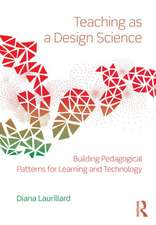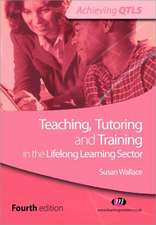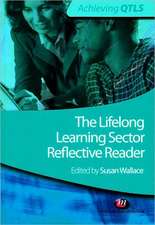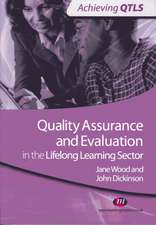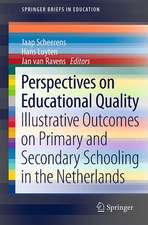The Ethical Challenges of Academic Administration
Editat de Elaine E. Englehardt, Michael S. Pritchard, Kerry D. Romesburg, Brian Schragen Limba Engleză Hardback – oct 2009
Surprisingly little has been written about the ethical challenges that academic administrators are likely to face. Most of the literature relating to academic administration focuses on “leadership” and draws heavily on management and social science theory. The importance of focusing on ethical deliberation and decision-making often goes unrecognized.
| Toate formatele și edițiile | Preț | Express |
|---|---|---|
| Paperback (1) | 723.24 lei 6-8 săpt. | |
| SPRINGER NETHERLANDS – 26 noi 2014 | 723.24 lei 6-8 săpt. | |
| Hardback (1) | 643.00 lei 6-8 săpt. | |
| SPRINGER NETHERLANDS – oct 2009 | 643.00 lei 6-8 săpt. |
Preț: 643.00 lei
Preț vechi: 756.47 lei
-15% Nou
Puncte Express: 965
Preț estimativ în valută:
123.03€ • 128.81$ • 101.81£
123.03€ • 128.81$ • 101.81£
Carte tipărită la comandă
Livrare economică 07-21 aprilie
Preluare comenzi: 021 569.72.76
Specificații
ISBN-13: 9789048128402
ISBN-10: 9048128404
Pagini: 224
Ilustrații: XXV, 196 p.
Dimensiuni: 155 x 235 x 25 mm
Greutate: 0.49 kg
Ediția:2009
Editura: SPRINGER NETHERLANDS
Colecția Springer
Locul publicării:Dordrecht, Netherlands
ISBN-10: 9048128404
Pagini: 224
Ilustrații: XXV, 196 p.
Dimensiuni: 155 x 235 x 25 mm
Greutate: 0.49 kg
Ediția:2009
Editura: SPRINGER NETHERLANDS
Colecția Springer
Locul publicării:Dordrecht, Netherlands
Public țintă
Professional/practitionerCuprins
Ethical Dimensions of Presidential Leadership.- Academic Ethics in Higher Education Administration: The Dimensions of Decisions.- Through the Looking Glass: Ethics and Academic Administration.- On the Dark Side: Lessons Learned as Interim Dean.- Caught in the Middle: On Chairing a Department.- Cardinal Virtues of Academic Administration.- Mission and Academic Administration.- Educated Warfare: Adversary Relations in the Groves of Academe.- Collaborative Administration: Academics and Administrators in Higher Education.- How Should the Policy Apply? Trustworthy Decisions in the Administration of Graduate Academic Programs.- On Telling Faculty the Truth.- The Paradox of Prejudicially Applying Valid Academic Standards: A Historical Case Study in the Ethics of Academic Administration.
Textul de pe ultima copertă
This book is an invitation to academic administrators, at every level, to engage in reflection on the ethical dimensions of their working lives. Academics are very good at reflecting on the ethical issues in other professions but not so interested in reflecting on those in their own, including those faced by faculty and administrators. Yet it is a topic of great importance. Academic institutions are value-driven; hence virtually every decision made by an academic administrator has an ethical component with implications for students, faculty, the institution, and the broader community. Despite this, they receive little systematic preparation for this aspect of their professional lives when they take up administrative posts, especially when compared to, say, medical or legal training.
The authors intend this work to be a first, rather than a final word, on the subject. This is because the practicalities of academic administration have not been the subject of much sustained ethical reflection. Surprisingly little has been written about the ethical challenges that academic administrators are likely to face. Most of the literature relating to academic administration focuses on "leadership" and draws heavily on management and social science theory. The importance of focusing on ethical deliberation and decision-making often goes unrecognized. What is needed is in-depth analysis informed by the general principles of professional ethics, as well as the more than 2000-year-old body of philosophical work on ethics.
It is clear that academia should examine its own domain. In focusing on ethics in academic administration, this book explores the issues that are faced every day by those managing seats of learning. What challenges does a new chair face when suddenly she is no longer simply a friend and colleague, but now the person adjudicating disputes, evaluating performance, and recommending career-impacting action? How does a dean respond to the struggles of balancing a budget and promoting his college’s interests? When a donor calls the president and requests a favor, what are the implications for the campus, internally and externally? It is these conflicts, and others, that are analyzed in this much-needed volume.
The authors intend this work to be a first, rather than a final word, on the subject. This is because the practicalities of academic administration have not been the subject of much sustained ethical reflection. Surprisingly little has been written about the ethical challenges that academic administrators are likely to face. Most of the literature relating to academic administration focuses on "leadership" and draws heavily on management and social science theory. The importance of focusing on ethical deliberation and decision-making often goes unrecognized. What is needed is in-depth analysis informed by the general principles of professional ethics, as well as the more than 2000-year-old body of philosophical work on ethics.
It is clear that academia should examine its own domain. In focusing on ethics in academic administration, this book explores the issues that are faced every day by those managing seats of learning. What challenges does a new chair face when suddenly she is no longer simply a friend and colleague, but now the person adjudicating disputes, evaluating performance, and recommending career-impacting action? How does a dean respond to the struggles of balancing a budget and promoting his college’s interests? When a donor calls the president and requests a favor, what are the implications for the campus, internally and externally? It is these conflicts, and others, that are analyzed in this much-needed volume.
Caracteristici
All contributors have a rare combination of experience in academic administration as well as formal academic background in ethics and ethics education enabling them to focus knowledgeably on the ethical issues which academic administrators face The book answers questions such as: When a donor calls the president and requests a favor, what are the implications to the campus, internally and externally?



